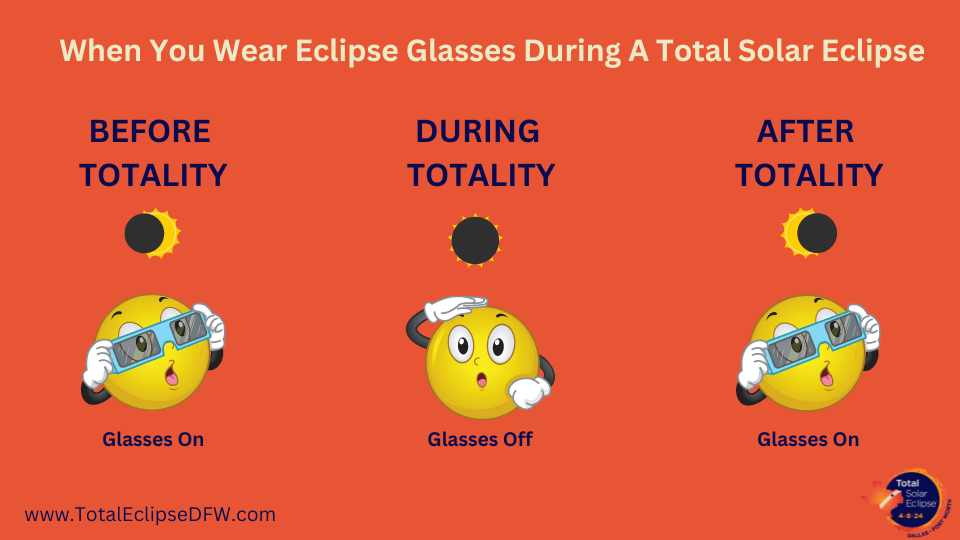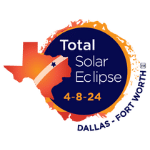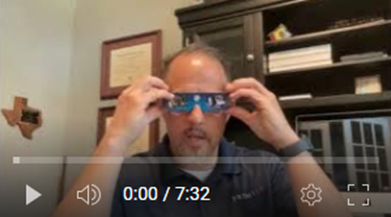Proper Eye Protection is Essential to Prevent Solar Retinopathy
With the upcoming Total Solar Eclipse on April 8, Dr. Jason Bryant, an emergency room physician and medical director at Premier ER & Urgent Care Waco, urges the public to prioritize eye safety when viewing this spectacular celestial event. As excitement builds, it is crucial for eclipse watchers to understand the potential risks associated with improper viewing techniques and to take the necessary precautions to protect their eyesight.
In a Q&A video, Dr. Bryant emphasizes the danger of looking directly at the sun without proper eye protection, which can lead to a condition called solar retinopathy. “If you look at the sun without eye protection, you can get solar retinopathy. It’s like a bruise or a burn on the retina in your eye, the area that perceives color and gives you your eyesight,” warns Dr. Bryant.
Solar retinopathy, or eclipse retinopathy, is usually a transient condition lasting from a few days to several months, depending on the duration of unprotected sun exposure. In extreme cases, permanent eye damage may occur. Symptoms of solar retinopathy include seeing spots, bright lights, or dark spots in the vision that persist longer than a few minutes.
To view the eclipse safely, Dr. Bryant stresses the importance of using ISO-compliant solar eclipse glasses. “The main thing is eye protection. That’s where most eclipse watchers are going to get into trouble. They will be tempted to glance at the sun without their ISO-compliant glasses,” he cautions. Even for a partial eclipse, the light that comes through from the Sun still contains UV rays that could damage your eyes.”
In addition to eye safety, Dr. Bryant also expresses concern about the potential for increased traffic accidents and injuries during the eclipse. “We will experience a large influx of people to the central Texas area. This will cause issues with travel and roadways and an increased number of people on the roads. The risk of injury or accident increases, especially if drivers try to look at the eclipse while driving,” he warns.
To minimize the risk of accidents, Dr. Bryant advises against attempting to view the eclipse while driving or walking. He suggests finding a safe parking location and observing the event while wearing proper eye protection.
For those who suspect they may have damaged their eyes while watching the eclipse, Dr. Bryant recommends seeking the guidance of an eye doctor to document any potential tissue damage and monitor the healing process. While there are no specific treatments for solar retinopathy, most cases heal independently with time.

Dr. Bryant is excited about the upcoming Total Solar Eclipse. “It’s a once-in-a-lifetime event. This key moment will mark a time in history for us with stories you can tell your kids and grandkids. I think that’s pretty exciting,” he shares. “There are not many things in life that you go into knowing that this is a once-in-a-lifetime experience. I think we can all enjoy it, and let’s do it safely.”
For more information on eye safety during the Total Solar Eclipse and to purchase ISO-certified eclipse glasses, visit https://totaleclipsedfw.com/. For more information on Premier ER & Urgent Care, visit https://www.premier.care/.
# # #
ABOUT TOTAL ECLIPSE DFW
Total Eclipse DFW is a regional campaign dedicated to showcasing the April 8 Total Solar Eclipse and the awe-inspiring path of totality as the quintessential celestial spectacle in North America. Operating as the central nexus, Total Eclipse DFW is the go-to resource for all aspects of the once-in-a-lifetime event, including eclipse-related information and events specific to the Dallas-Fort Worth area. Our core mission is to ensure universal access to ISO-certified safe solar eclipse viewing glasses while simultaneously engaging and partnering with residents, visitors, governmental entities, businesses, and media to orchestrate an unforgettable eclipse encounter for all involved. Furthermore, we take pride in championing Dallas-Fort Worth as the premier location to witness this extraordinary astronomical phenomenon. For more information, please visit https://totaleclipsedfw.com.
MEDIA CONTACTS:
Jo Trizila
TrizCom PR on behalf of Total Eclipse DFW
Email: Jo@TrizCom.com
Tammy Cancela
TrizCom PR on behalf of Total Eclipse DFW
Email: Tammy@TrizCom.com
Total Solar Eclipse & Eye Safety
Jason Bryant, MD
Emergency Room Physician and Medical Director at Premier ER & Urgent Care Waco
Q: What can happen to my eyes if I look directly at the Sun without proper eye protection?
A: If you look at the Sun without eye protection, you can get solar retinopathy. Solar retinopathy sounds fancy, but it’s like a bruise or a burn on the retina in your eye. The retina is the area that perceives color and gives you your eyesight. It’s in the very back part of your eye.
Q: How serious is solar retinopathy (also known as eclipse retinopathy)?
A: Solar retinopathy, for the most part, is a transient condition, meaning it’s only going to last a short while, depending on the amount of time that you stared at the Sun without eye protection. We’ve all looked at a bright light before, and sometimes you see a moving spot or a bright spot that stays in your vision for a short while. With solar retinopathy, it could last much longer and, in some cases, even up to several months. Generally speaking, it will heal itself with time, but it may take several months. In a real extreme case, there could be some permanent damage to your eyes.
Q: How do you know if you have hurt your eyes watching a solar eclipse?
A: Just like staring at a bright light, you may see a spot in your eye. Initially, it may be a bright light that eventually creates almost a black spot in your vision. This sensation can last only a few minutes if you do it with a regular household light. However, the UV rays and the Sun’s brightness can cause almost a sunburn. So, what would ordinarily go away within 10 minutes will last longer, perhaps a day, maybe even several days and even up to a few months. At that point, you’ve damaged your eye if it doesn’t go away within a reasonable amount of time.
Q: What do you do if you think you have damaged your eyes while watching the eclipse?
A: There is little you can do. There are not any great treatments for solar retinopathy. It just needs to heal itself. I would say if you did experience some damage or you have some loss of your visual field from the burns from solar retinopathy, you probably should see your eye doctor just to document any permanent damage to the tissue. Then, it can be followed up over time to ensure that it heals itself and that you are not left with any permanent damage.
Q: As an ER physician, what are you most concerned about with the April 8 Total Solar Eclipse?
A: The main thing is eye protection. That’s where the majority of eclipse watchers are going to get into trouble. They will be tempted to glance at the Sun without their glasses. The issue is that even for a partial eclipse, the light that does come through still contains UV rays that could damage your eyes. So even if it’s a partial eclipse, if you stare at the Sun for even a brief amount of time, you can do some damage to your eyes.
Also, there will be traffic, and we will experience a large influx of people to the central Texas area. This will cause issues with travel and roadways and an increased number of people on the roads. The risk of injury or accident increases, especially if drivers try to look at the eclipse while driving. That’s not a good decision. Secondarily, you have auto accidents, slips and falls to be concerned about. When you’re walking outside, you try to look up, but you’re not paying attention, and you trip off of a curb or something. There are all sorts of issues that could happen.
Q: How can I protect my eyes while watching the eclipse?
A: You wear solar eclipse glasses, which are nearly opaque. If you’re attempting to look at the Sun, ensure you have ISO-compliant glasses. However, other ways exist to look at the Sun during an eclipse without looking directly at the light. You can get a piece of cardboard, poke a hole in it, and let the light shine through. As the Moon covers the Sun, you can see how the light gets blocked.
Q: How excited are you about the Total Solar Eclipse on April 8?
A: It’s exciting. It’s a once-in-a-lifetime event. This key moment will mark a time in history for us, with stories you can tell your kids and grandkids. I think that’s pretty exciting. There are not many things in life that you go into knowing that this is a once-in-a-lifetime experience. I think we can all enjoy it, and let’s do it safely.

